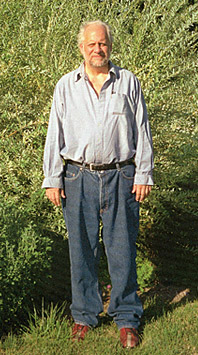GardenCare
As we head toward the longest day, light fills the sky, allowing us to see greater horizons than that of our garden alone. Rejuvenation and reform are in the air.
Specifically, Congress would do well to model health care on the principles of horticulture. Other than catastrophes, infectious agents or diseases caused by genes, sicknesses are due to poor diet and too little exercise. Humans need air, sunlight, water, fresh food and movement.
As ever, gardening provides for precisely these forms of health. When relatives were ailing, the Greeks and Romans often carried them out to surrounding farms, where they would recover by working in gardens, sleeping in fresh air and eating vegetables and herbs.
Home-grown vegetables possess up to 300% more nutrients than store-bought ones. Herbs provide extra tastes more beneficially than salt or sugar. Vitamin D is best gotten from sunlight, while the ions found in fresh air contribute to mood elevation. Inhaling and touching the microbes in garden soil relieves stress (though you need to remove your gardening gloves).
Speaking of inhalation, breathing is the beginning of not only life, but also prayer as well as mindfulness throughout Asia. Similarly, early Western society located the mind’s center in the heart rather than the brain. Tending the garden is a cardiovascular workout.
Research proves that gardeners live longer. In Sweden, scientists discovered that gardeners avoid strokes and heart attacks, thereby living an average of 14 years longer than non-gardeners.
Indeed, a regular schedule of the Tai Chi-like movements required to tend a garden for a week equals a day at the gym. Gardening feels good.
Tastes good too. Consumption requires motivation—nothing beats flavor. Fully-ripened vegetables produce optimum flavonoids only in home gardens. Store-bought broccoli fouls the nose and palate because the flowering heads exude repellant gas when picked green and stored by wholesalers and supermarkets for several weeks. It doesn’t want to be eaten, which is why unripe broccoli is commonly avoided. Too bad: broccoli possesses extraordinarily high concentrations of cancer-fighting antioxidant compounds.
However, in poetic irony, fresh-picked, fully-ripened broccoli’s nutty sweetness is beguiling—creamy with a heady flavor that stands alone, and combines marvelously with melted butter, ground pepper or lemon, or a bit of all three. Note to President George H. W. Bush.
After children acquire the habit of eating vegetables, they carry this salutary diet well into adulthood. The greatest influence in motivating kids to eat vegetables? Research shows that children’s participation in growing vegetables skyrockets their consumption of them.
Vegetables cure the sick, particularly the elderly. Diabetics now comprise almost 10% of the U.S. population. Lima beans, sweet potatoes and Swiss chard contain all the potassium needed by Type 2 diabetics of any age to relieve their symptoms and even contribute to remission.
Consider mental illness. Studies at Rutgers University prove that flower bouquets, pots and garden beds alleviate depression. Costly drugs are less effective and—by a long shot—more expensive. Some researchers believe flowers and humans co-evolved; we base our sense of beauty and ideas of form on the colors and shapes of flowering plants.
Legislators need to reimagine health care policy. Sensible caloric intake—in both quantity and quality—and regular outdoor exercise should be at the root of this deliberation. Horticulture holistically prevents and cures illness, while maintaining health.
The path to the garden lies before Congress.
A version of this article appeared in the May 25, 2017 edition of The Desert Sun
